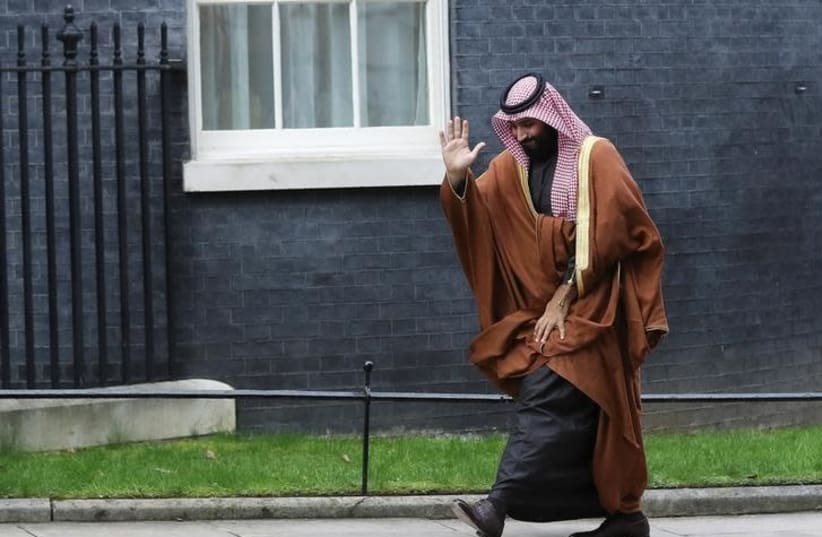A Related Video You May Like:
The crown prince’s discussions about a nuclear weapon to counter Iran is not the first time the Saudis have been pressed on this issue. Prince Turki al-Faisal, a diplomat, said in 2014 that the kingdom needed nuclear “know-how” to counter Iran.In 2015, during the lead-up to the Iran deal, there was buzz about a Riyadh “arms race” with Iran. Saudi ambassador to the US Adel Al-Jubeir was asked about his country building a bomb. “This is not something we would discuss publicly,” he told CNN. “The Kingdom of Saudi Arabia will take whatever measures are necessary to protect our security.”Pundit Fareed Zakaria pointed out in 2015 that Riyadh’s plans were smoke and mirrors. “Saudi Arabia hasn’t even built a car,” he noted. “The country’s education system is backward and dysfunctional,” he asserted, claiming that it relies on foreign workers for most things.The kingdom first began exploring a nuclear power program in August 2009 and it set up the King Abdullah City for Atomic and Renewable Energy in 2010 to develop plans for the future.In 2011, Riyadh announced plans to build 16 nuclear reactors over 20 years. Construction was supposed to begin in 2016, according to an article by the World Nuclear Association.Saudi Arabia is a signatory of the Treaty on the Nonproliferation of Nuclear Weapons and has met the safeguards related to the treaty. While it envisioned its first nuclear power plants providing electricity by 2032, according to reports, estimates now think they wouldn’t be ready until 2040.Nevertheless, according to an article by the Nuclear Threat Initiative last year, Saudi Arabia has made agreements with France, Argentina, South Korea and Kazakhstan regarding nuclear cooperation. “There is no credible evidence that Saudi Arabia has ever seriously pursued a nuclear weapon program,” the Nuclear Threat Initiative wrote.Therefore, the stories about a “nuclear arms race,” are largely an illusion. There is no race. Iran has a sophisticated nuclear program at numerous sites which goes back decades. It has uranium mines, three uranium-enrichment plants and a nuclear reactor.Construction at the Bushehr-1 reactor in Iran first broke ground in 1975 but wasn’t opened until 2011. Iran has plans for numerous more reactors. Other countries’ nuclear programs generally took years to build a weapon. Pakistan’s began in 1972 and the first test was in 1998; North Korea’s took from 1963 to 2006; India’s from 1967 to 1998; UK’s from 1940 to 1952; China’s from 1958 to 1964; France’s from 1945 to 1960.Saudi Arabia is mostly paying lip service to the Iran nuclear arms race issue as a way to get the US to take the Iranian threat seriously. This may have backfired a bit, because Saudi Arabia’s enemies in the region, including Iran and increasingly Qatar as well, have sought to portray the crown prince as stoking “instability,” “unrest” and removing “consensus” in the kingdom.After the nuclear issue came up on the eve of the crown prince’s major visit to the US, Rep. Ileana Ros-Lehtinen, the chairwoman of the House Foreign Affairs Subcommittee, said that “the idea of Saudi Arabia having a nuclear program with the ability to enrich is a major national security concern.”But long before Saudi Arabia gets anywhere close to a nuclear weapon there would be serious ramifications in the region. Any concerns that countries might have with the threat would therefore only exist in a matter of years, if not a decade.
Analysis: Saudi Arabia won't build a nuclear bomb
The kingdom's nuclear rhetoric is about US policy and the Iranian threat.
